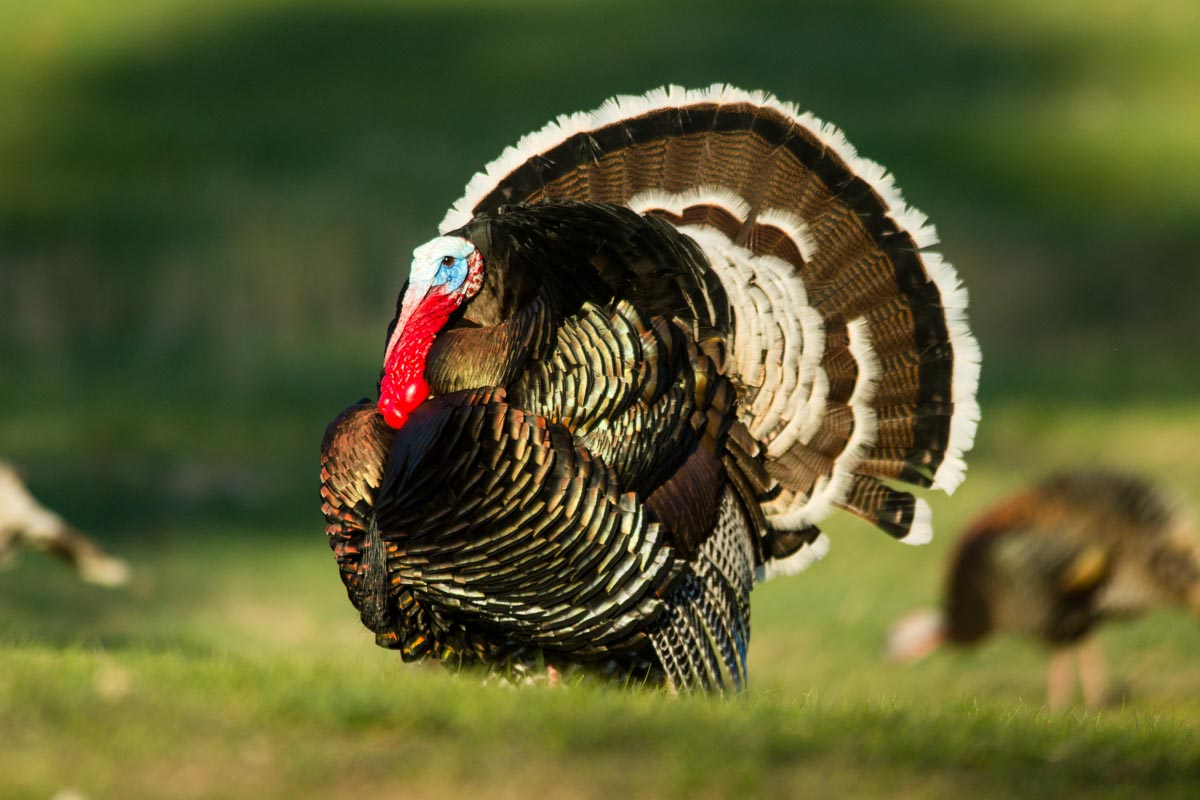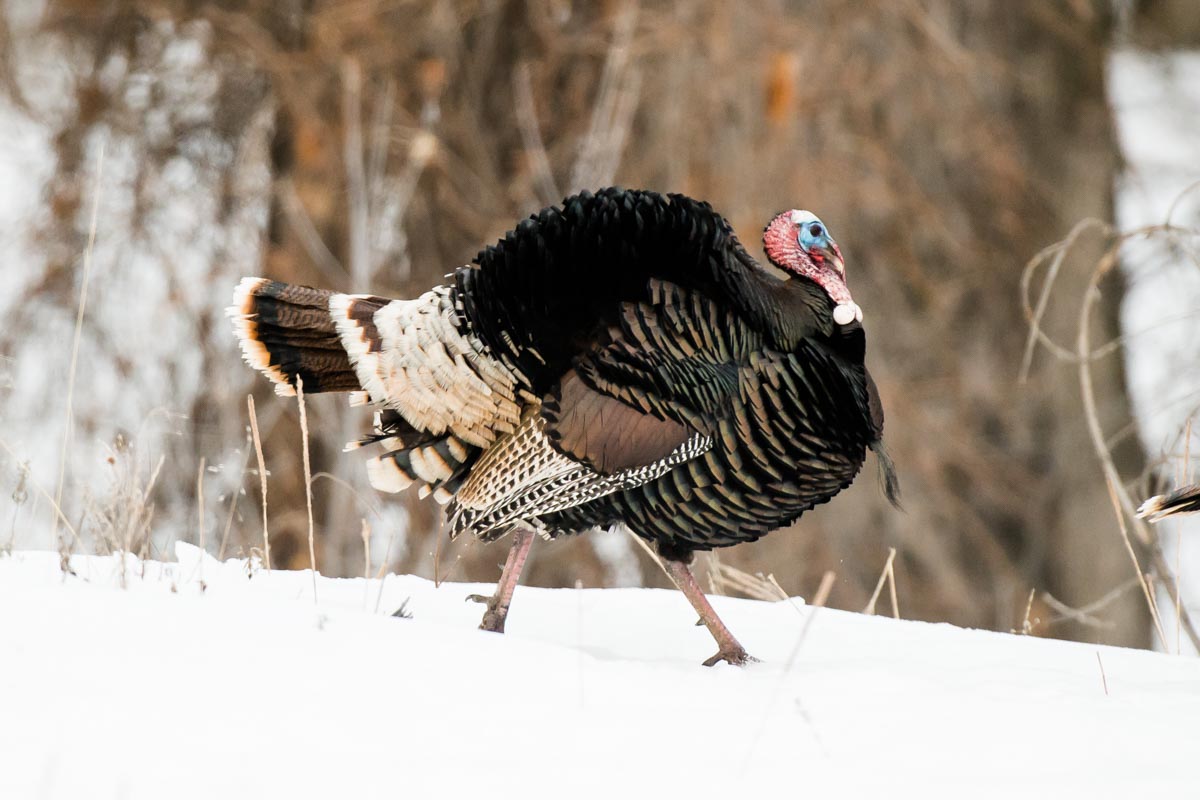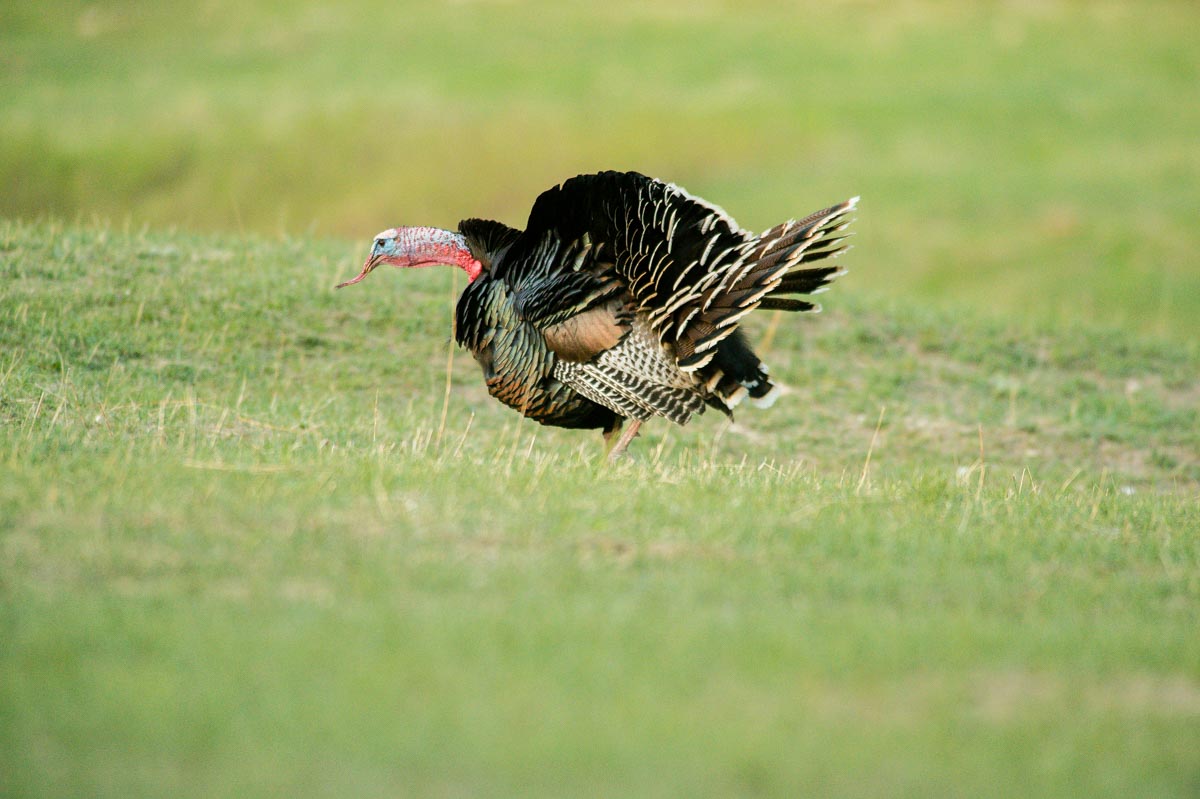
We’ve been dreaming about this weekend for sometime. But none of our visions contained weather like what’s being forecasted for Nebraska’s opening weekend of shotgun spring turkey season. Being a hardy lot we Nebraskans still have intentions of heading out to fill a tag or two. Here’s how…
Snow
Unless it comes in blizzard proportions, or is mixed with the conditions listed below, a little snow barely registers for turkeys who are focused on love right now. Strategies need to change very little, if at all, other than making sure you have a dry place to sit. Getting a wet bum while working a gobbler is not much fun. Being a bit louder on the call might help, too, as the falling snow may muffle sound.

Rain
Turkey feathers work a bit like shingles on a roof. Rain drops will roll from one feather to the next until they fall off. So a light rain or drizzle means very little. Though if it gets a bit heavier some birds might make use of “umbrella cover“, where they get some overhead protection from the falling drops. This might mean looking for them in the timber in the early season. When rain showers are short-lived you may notice this behavior more. Life has to go on when it rains all day.
Soaking rains can often push turkeys to the other extreme. Feathers don’t work well when pushed up against wet grass and brush. Turkeys are better off in the open in these conditions. Thunder and lightening are something completely different – don’t hunt in them. However, when it stops raining and the sun pops out – this can cause some of the best gobbling of the entire day. Look for sunny places, out of the wind and usually in the open.

Wind
Wind is tough. Nebraska turkeys are used to wind, more so than other gobblers I have chased. Which is good because wind is rarely completely absent here on the plains. Turkeys know how to use the creases in the landscape to get out of the wind. However, the stronger it blows the fewer places they have that will block it. The challenge is for you to get to these places before the birds do. Because once in them the turkeys may not leave them until they need to. You bumping them out is a reason to leave and then they have little interest in coming back.
Another challenge with big winds is how it effects sound. Your calling won’t reach as far. Worse yet is our ability to hear any response. My go to call in the wind is a big, squeaky box call that many term a “boat-paddle“. These things can create hen music that travels better than any other call. Now up close they don’t sound like much. But, further away they do sound hen-like. As far as hearing gobbles, I’ll pass along a tip I learned from brother. Position yourself on the downwind side of where you expect the gobblers to be. Having great hearing turkeys can pick up your calling better than we think. If they gobble you’ll have a better chance to hear it sitting downwind.
Final Thoughts
Patience in less than ideal situations may be the best strategy, especially in wind and rain. If you’ve done your homework, the turkeys are not as far away as we sometimes convince ourselves they are. These are the days a pop-up blind might pay for itself. Along with those fancy decoys you spent a small fortune on.
hershy
The post Bad Weather Birds appeared first on NEBRASKALand Magazine.





















